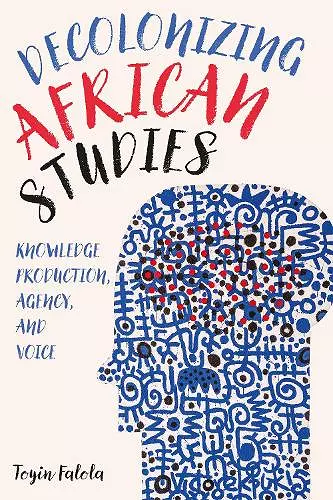Decolonizing African Studies
Knowledge Production, Agency, and Voice
Format:Hardback
Publisher:Boydell & Brewer Ltd
Published:18th Feb '22
Should be back in stock very soon
This hardback is available in another edition too:
- Paperback£39.99(9781648250460)

Examines transformational moments and liberation movements in the decolonization of inherited Western academic traditions in Africa. This book explores how decolonization and decoloniality provide liberationist knowledge to question and replace the hegemony of Western knowledge systems imposed on Africa. It critically examines the silencing and exclusion of subalterns in global knowledge production and the far-reaching implications of this for pedagogy and policy. As global power is concentrated in the global north where Eurocentrism and white supremacy validate the monopoly of knowledge and its centrality and universality, African perspectives continue to be marginalized or excluded in research, creating the problem of misrepresentation of the continent. It is to this challenge that this book has responded&emdash;the urgent need to eliminate the vestiges of colonialism in the academy and research methodologies. Coloniality is seen not only as a historical phenomenon but also as an ethnocentric continuum, dominating all aspects of present life, especially monopolizing human epistemology, the threshold of human existence, and even development activities. This book provides a balanced overview of what a feasible decoloniality should be. It is all-inclusive, aggregating differing perspectives, including decolonial feminist and LGBTQ thought. It deploys a holistic approach that critiques the limitations to decoloniality, the impediments that culminated in the failure of the late 20th century struggle for decoloniality, and the problems associated with current African resistance to academic decoloniality. The book closes with a discussion of African futurism. Seen as the advanced stage of decoloniality, African futurism involves the application of "traditional" (indigenous) instruments of articulation and cohesion such as Afro-spirituality, myths, folklore, and indigenous techno-scientific innovations, deployed in their capacity to drive, harness, and actualize future possibilities.
In this comprehensive book, Africanist Falola (Univ. of Texas, Austin) meticulously explores the origins of the Eurocentric academic, socioeconomic, and political onslaught on Africa. [...] Highly recommended. * CHOICE *
The book demonstrates Falola as a master of the protocols of writing a generally accessible academic book which is yet summative of the field in question, engaging significantly with its constitutive ideas. On account of the sheer scope of the work in terms of its sweeping coverage of practically every aspect of the subject, and its analytical range, the extensiveness of its engagement with the relevant issues and ideas in almost every aspect of African Studies, anyone who wants to gain an overview of the subject in depth is likely to find this book indispensable. -- Oluwatoyin Vincent Adepoju * New Times *
This massive book on the question of decolonizing African studies appears to be the first of its kind from a single author. It is only fitting that it is written by a scholar of Professor Falola's stature, who has spent several decades reflecting on these issues. Students and scholars of Africa would benefit from making it part of their required reading. -- David Ngong * Journal of Religion in Africa *
ISBN: 9781648250279
Dimensions: unknown
Weight: 1116g
690 pages